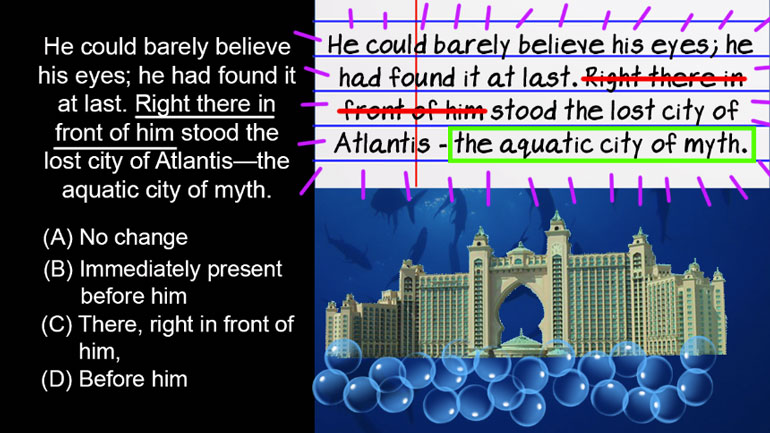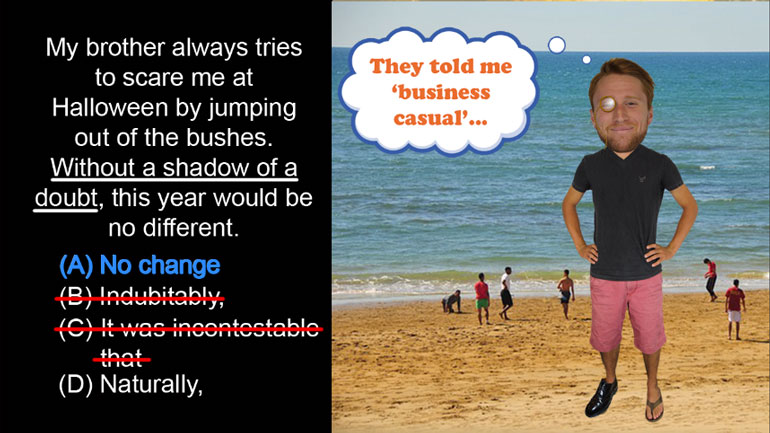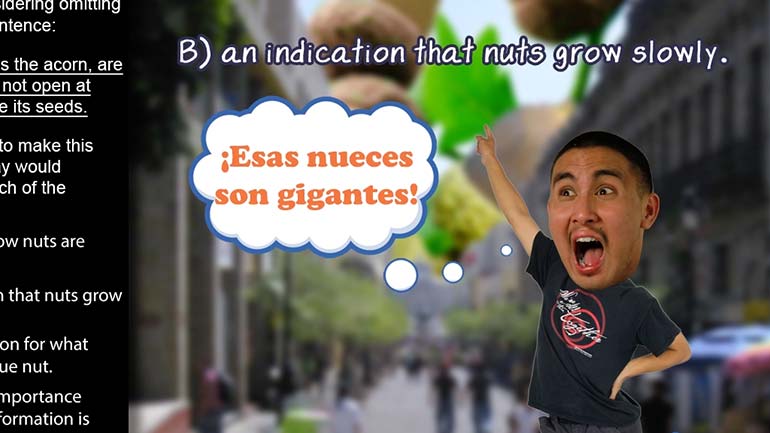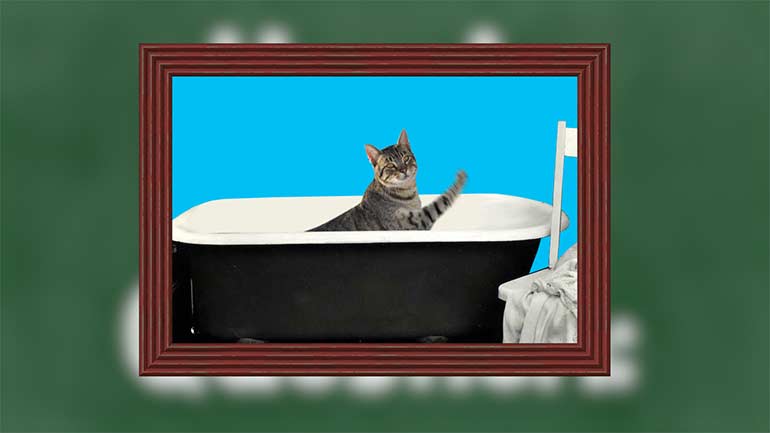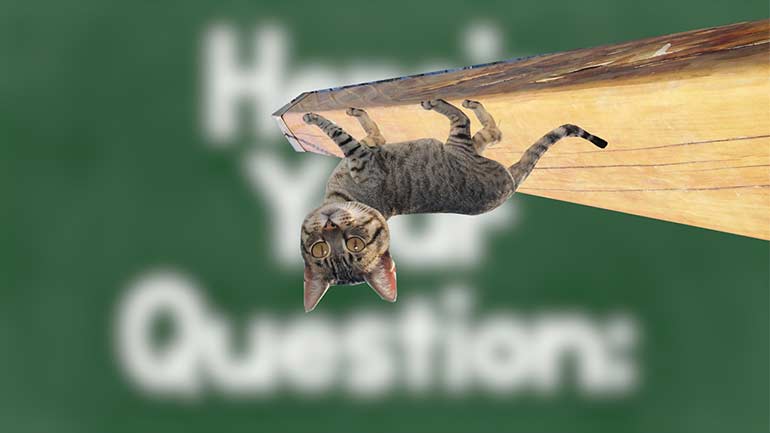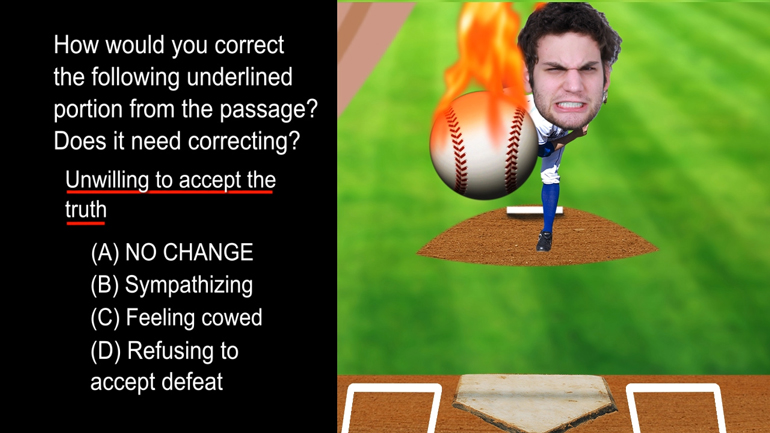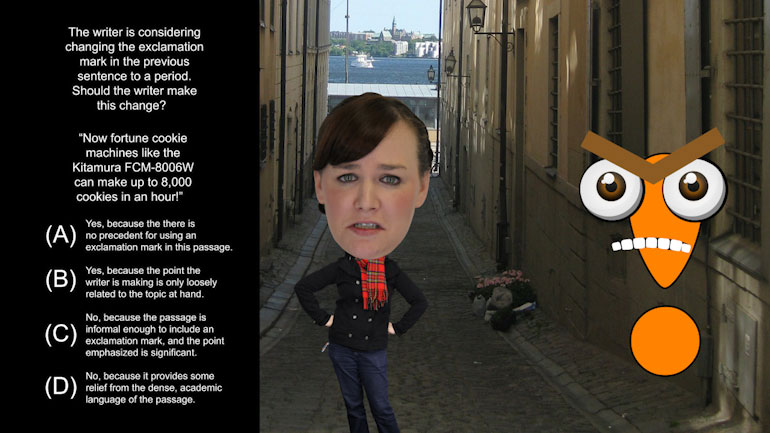ShmoopTube
Where Monty Python meets your 10th grade teacher.
Search Thousands of Shmoop Videos
Diction Videos 15 videos
ACT English: Style Drill 1, Problem 1. Does the underlined portion match the style?
ACT English: Style Drill 1, Problem 2. Which of the choices best matches the tone of the passage?
ACT English: Style Drill 1, Problem 3. Which choice best matches the formality of the sentence?
ACT English 2.14 Passage Drill 180 Views
Share It!
Description:
In this ACT English drill question, figure out if the underlined section requires a correction or not.
Transcript
- 00:03
Here’s your Shmoop du jour, brought to you by a miniature reenactment of Moby Dick.
- 00:08
Need we say more?
- 00:12
Check out the following passage and answer the question below.
- 00:26
How would you correct the following underlined portion from the passage? Does it need correcting at all?
- 00:39
This one requires us to find the correct introductory phrase for the sentence in question.
Full Transcript
- 00:46
Having the wrong introductory phrase can throw a sentence out of whack.
- 00:52
These types of phrases are supposed to set the stage for the sentence to come,
- 00:56
and if they set the stage in a confusing way, nobody knows what’s going on.
- 01:00
Choice (A) is a good example of an introductory phrase gone wrong.
- 01:04
“Unwilling to accept the truth”
- 01:06
fails because the sentence doesn’t reference any truth that the writer is unwilling to accept.
- 01:11
The author is well aware that the cat hates bathing, but bathes it anyway.
- 01:14
Harsh, but necessary we suppose.
- 01:19
Choice (B) gives us the modifier “sympathizing,” which supposedly describes the way the author
- 01:24
feels as he or she washes the cat despite its protests. Unless the writer is some kind
- 01:29
of sadist, there’s a good chance that he or she does feel bad for the cat.
- 01:32
However, “sympathizing” doesn’t groove with the rest of the sentence. If the writer
- 01:36
were overwhelmed with sympathy, he or she would probably stop bathing the cat. Instead,
- 01:40
the author continues the hated bath. Hm, maybe he or she is a sadist.
- 01:45
Next, we’ll take a look at choice (C), which offers the phrase “feeling cowed.”
- 01:52
In case anybody is wondering, the word “cowed” has nothing to do with our bovine friends--unless
- 01:57
they’re being bullied by the big cow on the block.
- 02:01
When someone has been “cowed,” it means that they’ve been intimidated into submission.
- 02:06
This, of course, doesn’t describe the author’s disposition. The author is making this bath
- 02:10
happen even though the cat is putting up a serious fight.
- 02:13
The correct answer is (D). The phrase “refusing to accept defeat” sets us up to hear the
- 02:19
rest of the sentence, and it functions as a transition from the cat's extreme reaction
- 02:23
to the writer's own fairly drastic action of turning on the shower.
- 02:27
We could think of a few more drastic actions, but the Humane Society would probably disapprove.
Related Videos
ACT English: Punctuation Drill 2, Problem 2. Where should the semi-colon be placed?
ACT English: Punctuation Drill 3, Problem 1. How should this sentence be changed so that it is grammatically correct?
ACT English: Punctuation Drill 3, Problem 2. How should we properly hyphenate the words in this sentence?
ACT English: Punctuation Drill 3, Problem 4. Which choice best formats this list of items?
ACT English: Punctuation Drill 2, Problem 1. Which choice of punctuation best completes the sentence?
